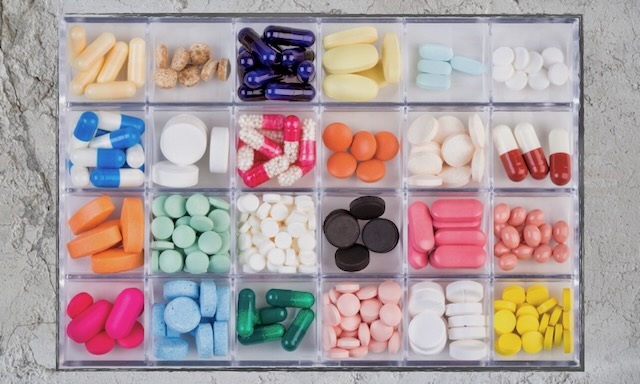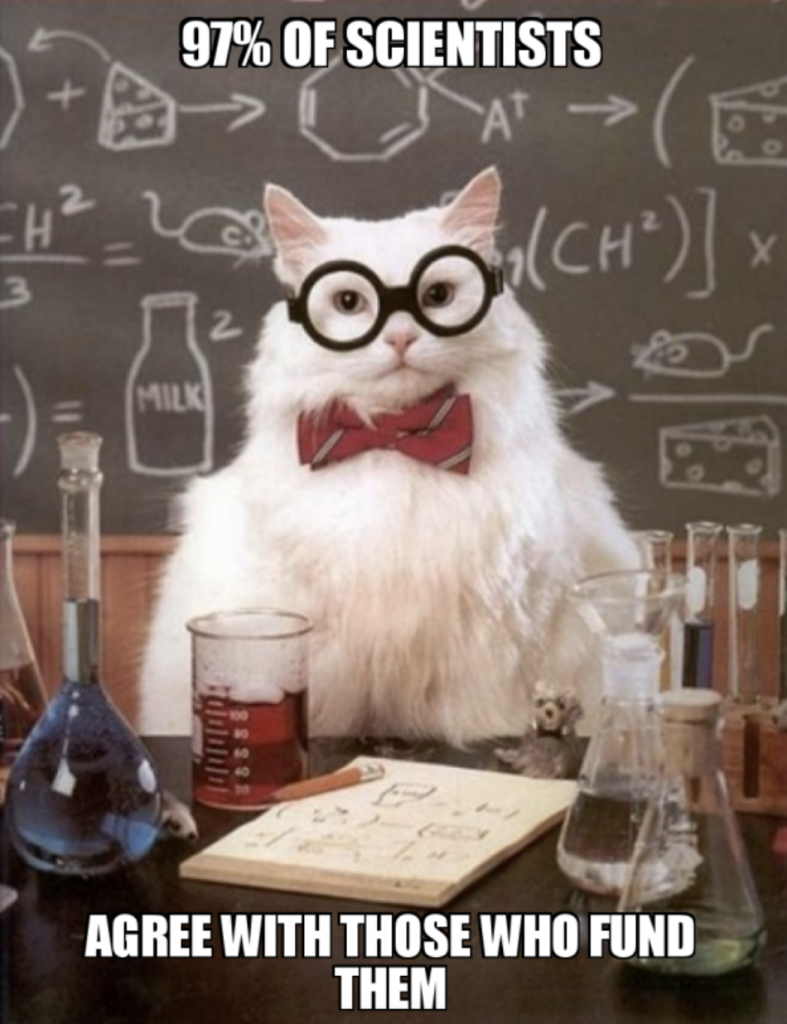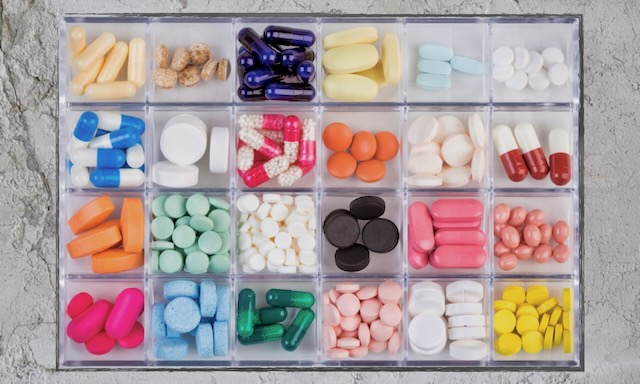
Big Pharma excels in creating customers for life
For those of us who started pulling uncomfortable threads of ‘hang on a minute, that doesn’t seem quite right’ and kept going, the world is now a strange landscape. When it comes to our health, many of us have had life-long assumptions smashed to smithereens.
The last few years have been a brutal introduction to the harsh realities of the medical industrial complex. Its recent behaviour has completely shattered public trust. Overnight, medical ethics including bodily autonomy and informed consent were tossed out. The dying were unable to see loved ones, blanket DNRs were applied and people were subjected to forced procedures (e.g. PCR testing) or were discriminated against based on their covid vaccination status. Most went along with these inhumane diktats that came from ‘on high’. Is it any wonder that many people would now be reluctant to enter a hospital even where there was a genuine need? There has to be a balance where people regain the confidence to seek care if genuinely needed. Throwing the baby out with the bath water will not lead to fewer excess deaths. Patients rightly want the best available care but in the current system of protocolised medicine, that pathway is far from guaranteed.
What is striking, when spending time amongst those still firmly planted inside the Overton window, is the notion that for any ailment – particularly with advancing age – the answer is always pharmaceutical or surgical interventions rather than lifestyle changes. This is clearly superb for Big Pharma. Less certain, is the benefit for the end user. Blanket approvals of the novel, mRNA injections across all age groups – in spite of total lack of long-term safety data – showed us clearly, in real-time, how money and politics corrupts health regulators. This renders the current system totally defunct. This article in The Epoch Times reports how 65% of drug recommendations by the FDA are approved based on a single study. In the meantime, doctors who want to promote lifestyle changes as first line treatment ahead of more dangerous interventions find themselves increasingly working in a system opposed to them.
Trying to make an informed assessment of risks and benefits becomes almost impossible, once you realise how untrustworthy scientific literature has become. Or perhaps always was. ‘But it says so in the Lancet….’ Hopefully, many have now realised how empty this sentence sounds. Research outcomes are heavily influenced by the desires of those funding them, who just happen to be the ones manufacturing the drugs. This meme, whilst humorous, is worryingly accurate:

From statins to HRT, to proven-to-be-ineffective surgeries, to antidepressants, there is almost zero discussion in modern ‘medicine’ of preventative measures that do not benefit Big Pharma. Diet, exercise, breathing techniques, stress management, ensuring proper balance of micronutrients, enquiring about emotional and relationship causes of ill health. These should be the basic lines of enquiry for any competent physician, long before offering various magic bullets following the luxurious seven minute consultation via Zoom. GPs offering this paltry level of service are complicit in ensuring their own redundancy within a few short years. AI would serve just as well, the human factor having been almost entirely scrubbed out.
Most people with elderly parents know that they often need special plastic containers to house the numerous medications that they take on a daily basis. Often many of these drugs were added in sequence to deal with side effects (or more correctly, ‘effects’) of the medications that were introduced first. This close-to-the-bone satire that has been circulating online really sums it up:
“I took ASPIRIN for the headache caused by the ZYRTEC™ for the hay fever I got from the RELENZA™ for the upset stomach and flu-like symptoms caused by the VIAGRA™ for the erectile dysfunction from the PROPECIA™ for the hair loss caused by the RITALIN™ for my short attention span caused by the SCOPODERM TTS™ for the motion sickness that I got from the LOMOTIL™ for the diarrhoea caused by the XENICAL™ for the weight gain caused by the PAXIL™ for the anxiety that I got from the ZOCOR™ that I’m taking for my high cholesterol, because a good diet and exercise is just too much trouble.”
There seems to be the prevailing belief that human beings can only stay alive with constant interference from the medical profession. But what if the entire system keeps you sick, in order to retain you as a loyal customer to The Firm? What if much of the so-called ‘safety’ data are in fact just as flawed as those used to push the covid ‘vaccines’ in 2020? For those of us who became curious (suspicious?), we felt it might be worth having a retrospective look at other trends in medical diagnostics and treatments.
As it turns out, the more you look, the more you find…
Doing more harm than good?
A deep dive into questionable drugs and surgical practices that are built into standard protocols here in the UK would fill a book. Maybe several books. That is beyond the scope of this article, however here are a few ‘top picks’ to get started:
- Statins: This has been allowed on occasion to seep into mainstream consciousness, but it is still worth reading the book written by Dr Malcolm Kendrick, entitled The Great Cholesterol Con. There is simply no good evidence for the widespread use of statins. The notion that they don’t have harmful effects is also nonsense. A 17-year study on the elderly showed that low serum cholesterol was associated with increased frailty, accelerated mental decline, and early death. This should get any sensible clinician asking questions about what effects deliberately lowering it might have on long-term health.
- SSRIs: a growing number of studies show they are less effective than thought. Has this resulted in a decline in prescriptions? Of course not. In fact psychiatry in general is an area that many medics describe as barbaric. The links between gut and brain health are now widely accepted and yet almost no money goes into mainstream R&D in this area. Cures are simply not as profitable as life-long customers.
- HRT: There is evidence for an increased risk of blood clots and stroke as well as an increased risk of breast and ovarian cancer in women using HRT. In researching this article and questioning women who had recently started on these drugs, most had not been adequately informed as to any associated risks. Many had no idea what kind of HRT they were even taking. This shows the level of blind faith people still have in a system that, judging by the history of criminal fines paid out, does not have a very good track record, to say the least.
- Angioplasty: For decades, we were led to believe that angioplasties are an effective treatment for not only angina (chest pain) but also served as protection from a heart attack. Now, the evidence seems to point to the procedure being ‘useless’ or even worse than useless. Lifestyle and diet changes are more effective and have the capacity to reverse the progression of coronary heart disease. This hardly seems like rocket science but somehow has taken decades to ‘realise’.
- Childhood Vaccinations: or as we like to call them, The Sacred Cows. Daring to even utter the words that these interventions may carry risks as well as benefits, or pointing out that there are no long-term safety studies using a genuine placebo, seems to create an allergic reaction in even the most sceptical of folks. However, at HART the adage ‘everything is back on the table’ is one we hold dear. Many people who now have the appetite to question The Science™ are quietly murmuring the name of the book Turtles All the Way Down. Perhaps it is worth reading, just to know what the alternative view point is. We do not need protection from theories. We need them to be aired and debated, so we can reach full and informed decisions. No topic should be out of bounds, including this one. Perhaps especially this one.
This list could go on ad infinitum, but instead we will end with a list of suggestions given by various practising medics when asked about drugs or interventions that they question. Once again, we point out that people are individuals. Protocols are not good for individuals. Do your research, take responsibility and remember that The Experts may have their hands tied firmly behind their back by The Money.
List of drugs with questionable efficacy/safety from currently prescribing doctors:
- Dementia drugs: noted poor efficacy, serious side-effects;
- Anticoagulants: should be used more judiciously due to risks of bleeds after falls;
- Bisphosphonates: this drug for osteoporosis has notoriously bad side effects, and shows questionable efficacy;
- Benzodiazepines and other so-called ‘Z’ drugs (zopiclone, eszopiclone, zaleplon and zolpidem): habit forming with evidence of severe side effects such as dementia, infections, respiratory disease exacerbation, pancreatitis, and cancer. They cause severe withdrawal symptoms;
- Gliflozins: the new ‘wonder drugs’ used in diabetes and heart failure. Concerns about kidney damage and they come with no long-term safety profile;
- GLP-1 agonist injectables: originally marketed for diabetes, now being sold as weight loss drugs. Concerns over risks of thyroid and pancreatic cancer and can cause pancreatitis;
- Psychiatric drugs in general. Recommended reading: Toxic Psychiatry by Peter Breggin;
- Antivirals: For example Tamiflu, which is now labelled a ‘fiasco’. The drug caused severe side effects such as hallucinations, self-injury, abnormal behaviour and renal impairment;
- Proton Pump Inhibitors (PPIs): evidence of major side effects with long-term use, including dementia, chronic kidney disease and increased cancer risk;
- Beta Blockers: evidence that long-term use is not associated with improved cardiovascular outcomes, with considerable side effects, such as depression and fatigue;
- Anti-arthritis drugs: Overuse of NSAIDs in particular can cause bleeding, heart attack, stroke, and renal damage.
To quote Aldous Huxley: ‘Medical science is making such remarkable progress that soon none of us will be well’.

